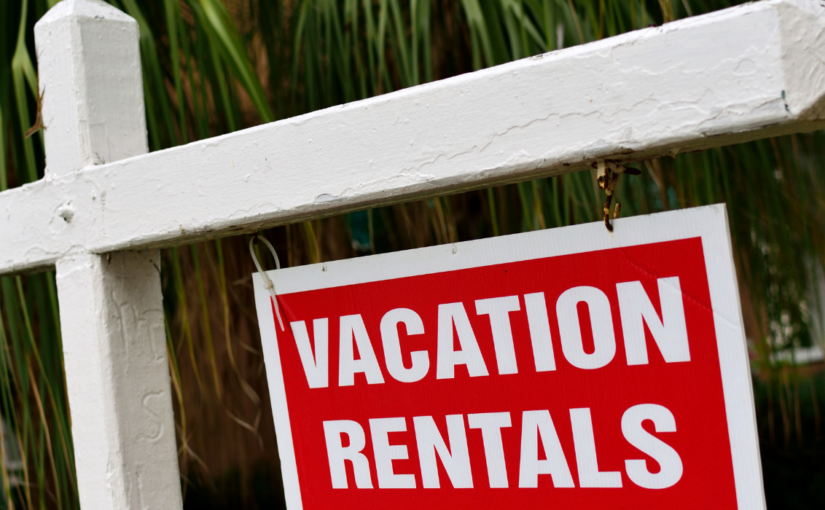back
The benefits and challenges of short-term rental management for property managers
03-2023

Vacation rentals, usually referred to as short-term rentals, have gained popularity as a hotel substitute recently. The demand for short-term rentals has surged with the expansion of Airbnb, Vrbo, and other internet platforms. Thus as a strategy to increase revenue, property managers are increasingly resorting to short-term rental management. We’ll talk about the advantages and difficulties of managing short-term rentals for property managers in this blog post.
Benefits of Short-Term Rental Management
- Higher Revenue Potential: The possibility for more revenue is one of the main advantages of short-term rental management. Short-term rentals bring in a lot more money per night than long-term rentals do. Because of their flexibility and convenience, short-term rentals can attract higher nightly fees.
- More Flexibility: Compared to long-term rentals, short-term rentals are more flexible. Pricing, minimum stay restrictions, and booking policies are up to the discretion of the property manager. Also, they can decide whether to make their home available for short-term rentals, giving them the option of using it for their own purposes or long-term rentals throughout times of low demand.
- Better Guest Experience: This kind of lodging is frequently chosen by short-term rental visitors because of the distinctive experience it provides. Property managers may improve the guest experience and promote good evaluations by offering customized amenities, local recommendations, and quick customer service.
- Reduced Wear and Tear: Less Wear and Tear Because there are often fewer long-term renters in short-term rentals, the property experiences less wear and tear. This implies that property managers might ultimately save money on upkeep and repairs.
Challenges of Short-Term Rental Management
- Higher Turnover: Compared to long-term rentals, short-term rentals have higher turnover rates. Property managers need to be equipped to handle additional check-ins, check-outs, and cleaning schedules as a result. Also, it may be challenging to build lasting ties with customers due to the continuous turnover.
- More Regulations: At the federal, state, and local levels, there are numerous rules that apply to short-term rentals. These rules may differ based on where the rental property is located and may include zoning, insurance, and safety standards.
- Increased Liability: The safety of visitors while they are staying at a rental property is the responsibility of the property manager. This entails taking care of potential safety risks, keeping a sufficient level of insurance coverage, and abiding by local laws. Liability claims may result from failure to do so, and defending against them may be expensive and time-consuming.
- Unpredictable Income: Due to seasonal demand, weather fluctuations, and other uncontrollable factors, short-term rental income might be uncertain. This might make it challenging to budget and establish long-term plans, particularly during times of low demand.
Tips for Successful Short-Term Rental Management
- Research Local Regulations: To ensure compliance, it’s crucial to research local laws before launching a short-term rental management company. Understanding zoning laws, tax liabilities, safety standards, and insurance coverage are part of this.
- Invest in High-Quality Amenities: Offering top-notch amenities can enhance the guest experience and promote positive evaluations. To make your house stand out, think about making investments in cozy mattresses, opulent linens, and neighborhood recommendations.
- Utilize Technology: Management of short-term rentals can benefit from the use of technology. To improve operations and the guest experience, think about utilizing automated cleaning services, smart locks, and online booking platforms.
- Build a Strong Reputation: Success with short-term rentals depends on developing a solid reputation. By delivering exceptional client service and individualized facilities, you can promote good ratings. Inquiries and concerns from guests should be handled quickly, and any problems should be disclosed openly.
Property managers that manage short-term rentals have the chance to increase revenue, improve the guest experience, and minimize damage to their properties. Yet it also has its own special set of difficulties, including more turnover, more rules, greater liability, and erratic income. Property managers need to be prepared to make investments in top-notch amenities, use technology, and establish a solid reputation if they want to be successful in managing short-term rentals. They must also be equipped to deal with the particular hazards related to short-term rentals and to negotiate the regulatory environment. Short-term rental management is a lucrative and satisfying business opportunity for property managers with careful planning and execution.
F2H Capital Group is a debt advisory firm specializing in negotiating the best terms for your commercial real estate projects. The company offers a range of financial products and services, including fixed loans, bridge loans, and construction loans across all asset types. Please contact us for any of your financing needs.

